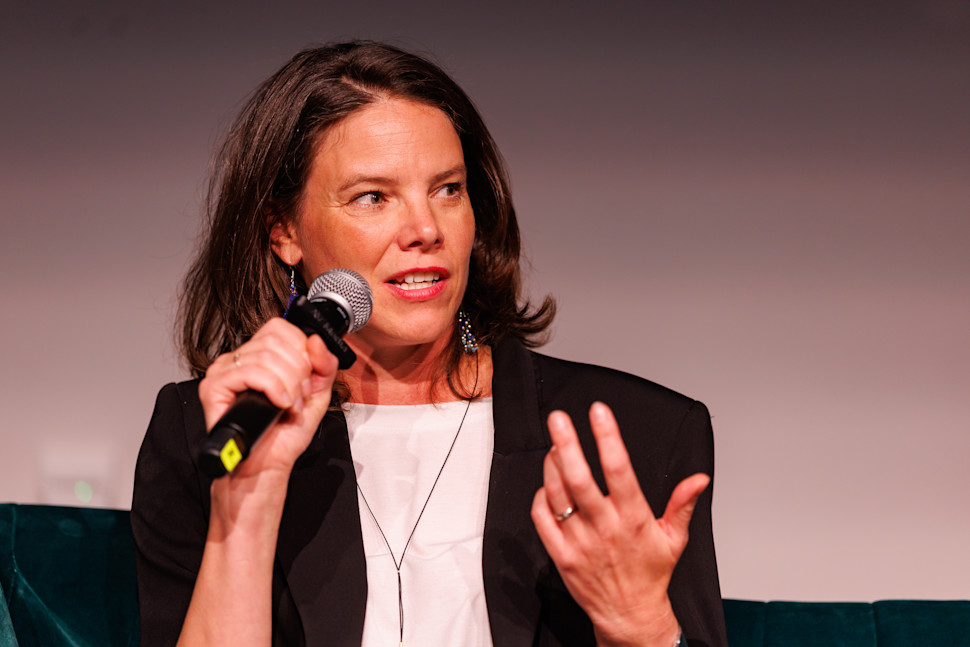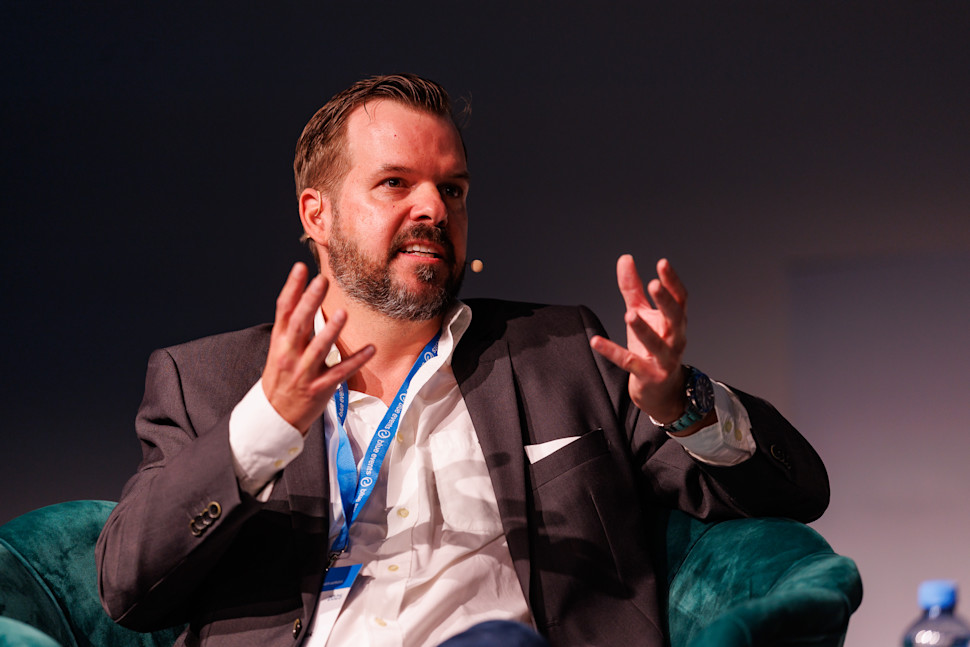Panel Discussion CMO & CEO: No More Cinderella! Marketing Should Be the Customer’s Advocate – and a Partner for the CFO


How to align the mutual expectations of marketing leadership and company management? At this year’s Brand Management conference, the discussion didn’t stay at the level of theory – the panel organized by Marketup brought together highly practical perspectives from different industries and roles.Daniela Hlaváčková, Central European Marketing Director at FMCG giant Mars, spoke about the fact that marketing is not just a department and that brands cannot be built by communication alone. Hana Libecajtová, Executive Director for Brand Strategy and Communication at Komerční banka, shared insights on the bank’s transformation and the new definition of marketing that came with it. And how marketing is viewed from the CEO’s perspective was outlined by award-winning manager Michal Karcol, who leads the Czech and Slovak branches of the successful international group XXXLutz.
Eight out of ten marketing directors are fully responsible for communication, making it the most represented part of the marketing mix. Other components – product development, pricing, and distribution – are represented to a far lesser extent. This is according to a study on the role of marketing in company leadership, which served as the starting point for the discussion and was carried out jointly by Marketup, the research agency Confess, and conference organizer Blue Events.
Daniela Hlaváčková explained that at Mars, the approach is more complex – which is not always easy to get across. “What we sometimes run into are different expectations among candidates for marketing positions,” she said. “As a company, we are built on evidence-based marketing. If someone doesn’t understand that market penetration and broad reach are key, then both sides struggle.”
From campaigns to managing customer experience
Hana Libecajtová continued by outlining the impact of Komerční banka’s transformation into a “new era of banking” on its marketing. “The role of marketing has shifted from a primarily communication function to the role of co-creating propositions and guaranteeing a unified customer experience across all channels,” she explained. “Specialist functions such as User Interface/User Experience and Customer Experience/Brand Experience, or brand and communication management, have become centers of expertise or dedicated departments.”

In business terms: marketing is now assessed much more on its commercial impact – from client acquisition through activation, to cross-sell and the overall improvement of the customer journey.
At XXXLutz, one of the leading furniture retailers in the Czech Republic and Slovakia, the situation was somewhat different. As is common in retail, sales activation campaigns took precedence. Brand building was secondary – but that is starting to change. There is a growing awareness that marketing has a much broader role than just supporting transactions. Brand salience in relevant purchasing situations is key. A strong brand can much more easily convert attention into sales. But once a customer is already in the online store or on the sales floor, delivering an excellent experience is critical.
“We have now decided to explore customer experience (CX) from A to Z,” explained Michal Karcol. “One of the goals is also to find out why growing brand awareness has not yet fully translated into personal experience with the XXXLutz brand. Based on results, which we expect in about three months, we will adjust and improve processes, fix operational gaps, retrain or further train our colleagues on the sales floor… We will focus on critical points and set everything up so that we deliver products and services to customers in the scope and form they require today.”

Customer experience runs across the entire company – the customer ultimately does not care whether they are being served by marketing, sales, customer service, or any other department. What matters is that their need is met – and ideally, that they leave with a good feeling. Achieving this, however, requires aligning all parts of the company. And, as is well known, especially between finance and marketing, sparks often fly.
Aligning expectations – and measuring results
“The connection between the CMO, CFO, and sales directors is the most important for me,” confirmed Daniela Hlaváčková. “It’s about balancing short-term and long-term goals, setting clear priorities and KPIs. For a CMO, the brand will come first and then profit or efficiency. For a CFO, it’s efficiency first and then the brand. But it’s essential to have KPIs aligned.”

The research shows that the most closely tracked metric for evaluating marketing is revenue, followed by customer lifetime value. Revenue, however, can be misleading – growth must go hand in hand with maintaining margins, otherwise company profitability is at risk. As Michal Karcol put it: “It’s important to have long-term goals and plans and stick to them. Any rash or ill-considered intervention can cost quite a large portion of the budget without delivering the expected effect.”
At XXXLutz, they have therefore introduced detailed KPI tracking, especially customer satisfaction. They monitor customer satisfaction scores (CSAT) as well as Net Promoter Score (NPS). “We look at satisfaction very closely step by step,” said Michal Karcol. “How satisfied customers were with the visit to the store, at the time of contract signing, after receiving goods, after installation, when handling complaints…”
Finding a common language
Hana Libecajtová explained what metrics matter for the “new” Komerční banka: “It’s growth and efficiency. That means client acquisition and their activation in the KB+ platform, share of digital sales, product penetration, but also Return on Equity. More classical marketing metrics, such as brand awareness, preference, or identification via distinctive brand assets, are part of brand tracking.”
A holistic view of the customer journey is a hot topic. According to PwC, more than half of marketers plan to increase investment in CX. And local research among CMOs and CEOs shows: in the Czech Republic, only 24% of CMOs are responsible for CX, and in 31% of companies, no one has clear responsibility. A frequent barrier is fragmented competencies. How does Komerční banka address this? “CX ownership is shared,” explained Hana Libecajtová. “Marketing is the guardian of the brand and the customer’s voice – it holds the standards and is responsible for content and for orchestrating journeys across channels.”

Sometimes, however, it’s not just about coordination within the company. International dimensions add a whole new level of complexity. And it should be noted that the panelists all came from large international firms. “Because I’m responsible for ten countries, the entire chain is important to me – from global to European HQ down to the individual markets,” explained Daniela Hlaváčková. “We have the same communication line worldwide. I don’t develop campaigns, but I implement them. At the same time, I adopt European settings and then apply them to individual markets. For example, with the global Snickers concept You’re not you when you’re hungry, global campaigns are tested in Europe, and we then ensure execution in local markets across all other media channels, where we have more freedom. For instance, we manage PR and influencers ourselves.”
Michal Karcol offered a slightly different view, pointing out that in furniture retail, local differences play a greater role. “The key is to smartly adapt the global brand strategy to the local market and environment and change what can be changed,” he explained.
Keeping marketing at the leadership table
So how can marketing gain and maintain a seat at the leadership table? The panelists agreed: the key is to find a common language. And it’s not just about numbers. “As marketers, we are storytellers, and we should make use of that,” reminded Daniela Hlaváčková. But it also helps when the principles of evidence-based marketing are understood across the company. “Already in strategy preparation, we rely on the laws of growth: penetration is key, brands are replaceable, and memories are fragile. Mental and physical availability is the essence of our business.”



